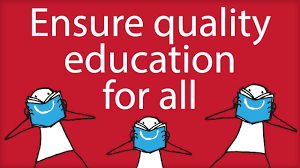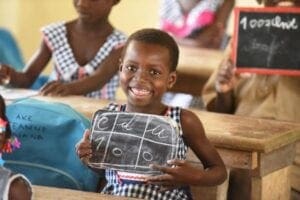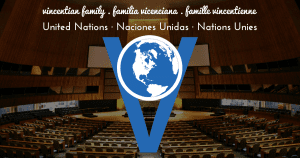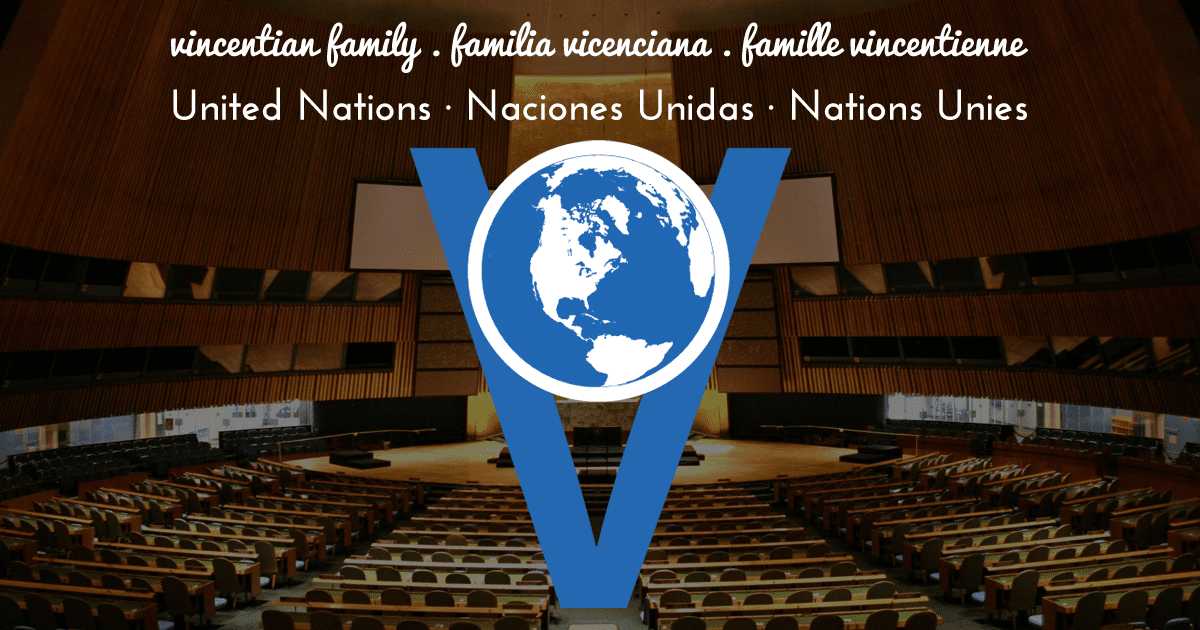Education Day to Focus on Recovery from COVID-19
(With information from UNESCO)
From running inclusive education programs for children with disabilities, to providing elementary and secondary education, to offering literacy sessions for migrants, to operating universities, the Vincentian Family is committed to education. Education, to our Founders, was a pathway out of poverty. Saint Vincent de Paul and St. Louise de Marillac both integrated teaching into their ministries. Saint Elizabeth Ann Seton founded the first free Catholic School for girls in the United States. Vincentian education continues throughout the globe.

Photo Credit: UNESCO
The UN will honor the education world, January 25, during the Third Annual International Day of Education. (The actual day is January 24). This year’s International Day will focus upon the theme, “Recover and Revitalize Education for the COVID-19 Generation.” The idea is to encourage global collaboration in placing education and lifelong learning at the center of recovery from COVID-19.
A global event for the International Day will highlight learning heroes; innovations, and financing. The celebration of International Education Day by UNESCO will be organized collaboratively with several other organizations, including the Global Partnership for Education and the Centre for Interdisciplinary Studies (CRI), and will include participation of partners from the Global Education Coalition.
EDUCATION IS A HUMAN RIGHT
Education is a human right, as expressed in Article 26 of the Universal Declaration of Human Rights. Education is also the center of Sustainable Development Goal (SDG) 4: Ensure inclusive and equitable quality education and promote lifelong learning opportunities for all. But the effects of COVID-19 could hinder efforts to achieve SDG 4 by 2030.
IMPACT OF COVID-19 UPON EDUCATION

Photo Credit: UNESCO
There were challenges in education before the pandemic. According to UNESCO, despite strong universal enrolment in early grades in most countries, more than 250 million children were out of school, and nearly 800 million adults were illiterate. About 387 million, or 56 percent of primary school age children worldwide, were estimated to lack basic reading skills.
The pandemic has added to these pre-COVID 19 challenges. An August, 2020, UN Policy Brief entitled, “Education During COVID-19 and Beyond,” pointed out that the pandemic has caused the largest disruption of education systems in history, affecting nearly 1.6 billion learners in more than 190 countries and all continents. Closures of schools and other learning spaces, the brief states, have impacted 94 percent of the world’s student population, up to 99 percent in low and lower-middle income countries. Nearly 369 million children who relied upon school meals needed to find nutrition elsewhere as of April, 2020.
The pandemic also is reducing opportunities for some of the most vulnerable children, including girls, refugees, persons with disabilities, and displaced persons. Some learners do not have access to technology in order to engage in remote learning, while others do not have sufficient internet access. Some 23.8 million children and youth (from pre-primary to tertiary) may drop out or not have access to school this year due to the pandemic’s economic impact alone.

Photo Credit: UNESCO
COVID-19 has also highlighted inequalities. A considerable percentage of elementary schools did not have handwashing facilities, a key to COVID-19 prevention. Remote learning was impossible for millions of students. And the school completion rate in the poorest 20 percent of households was 34 percent compared to 79 percent of those in the richest 20 percent of households. COVID-19 is worsening the situation of education in Sub-Saharan Africa where, prior to the pandemic, 47 percent of the world’s 258 million out-of-school children live.
WHAT HAS THE UN DONE?
The UN has responded to the COVID-19 crisis in a number of ways. UNESCO indicates it is supporting countries in their efforts to mitigate the immediate impact of school closures, particularly in more vulnerable and disadvantaged communities, and to facilitate the continuity of education for all through remote learning.

Photo Credit: UNESCO
UNESCO also has:
- Formed a global education coalition to support countries in scaling up their best distance learning practices and reaching children and youth who are most at risk
- Prepared thematic knowledge-sharing workshops
- Produced issue notes covering key topics related to the COVID-19 education response.
- Created a selection of digital learning resources that governments, schools, teachers, and parents can use to open opportunities for learners unable to attend to school.
- Prepared a repository of national learning platforms designed to support the continuity of curriculum-based study.
- Conducted surveys to analyze the impact of and response to school closures.
As Vincentians, we might ask “how can we support the schools in which our members serve? How can we help a child gain access to digital technology? How can we meet the needs of children who need nutrition but are no longer receiving it at school? How can we support teachers who are upskilling in the area of virtual technology or who stand in need of classroom supplies? How can we ensure internet access is available to all?”








Thank you, Margaret, for an especially timely topic, and for reminding us of the importance of education as a pathway out of poverty. But most of all for emphasizing poor and vulnerable school children and their needs. Too many are falling behind–in spite of the common “leave no one behind” mantra..